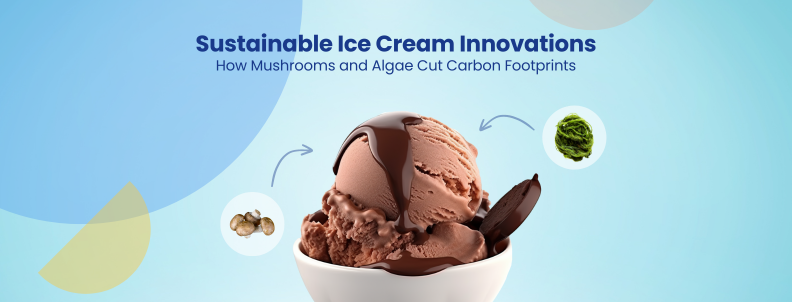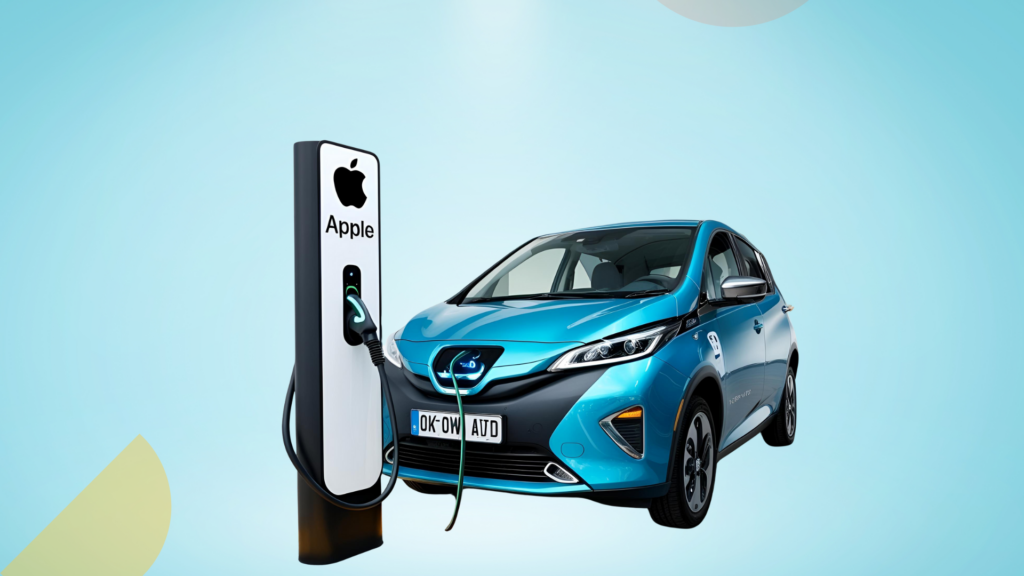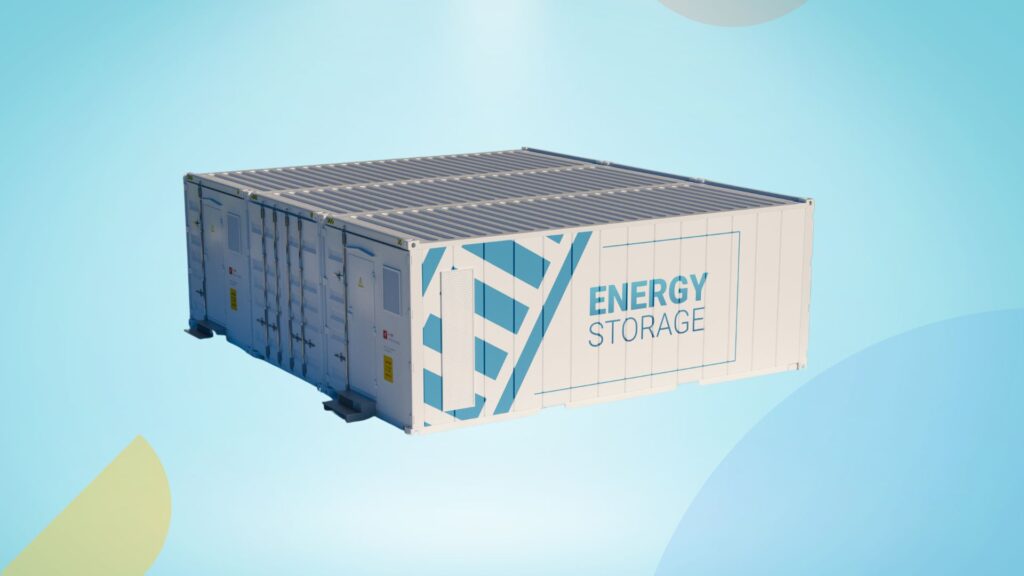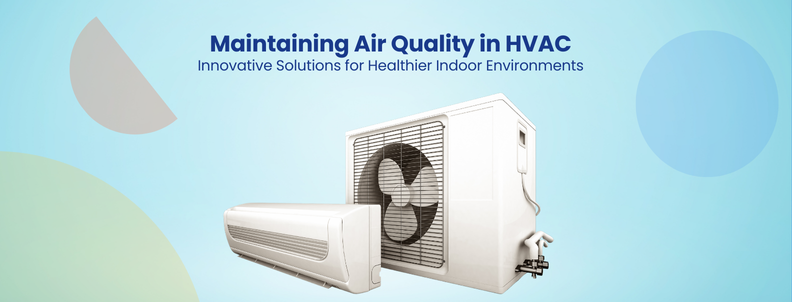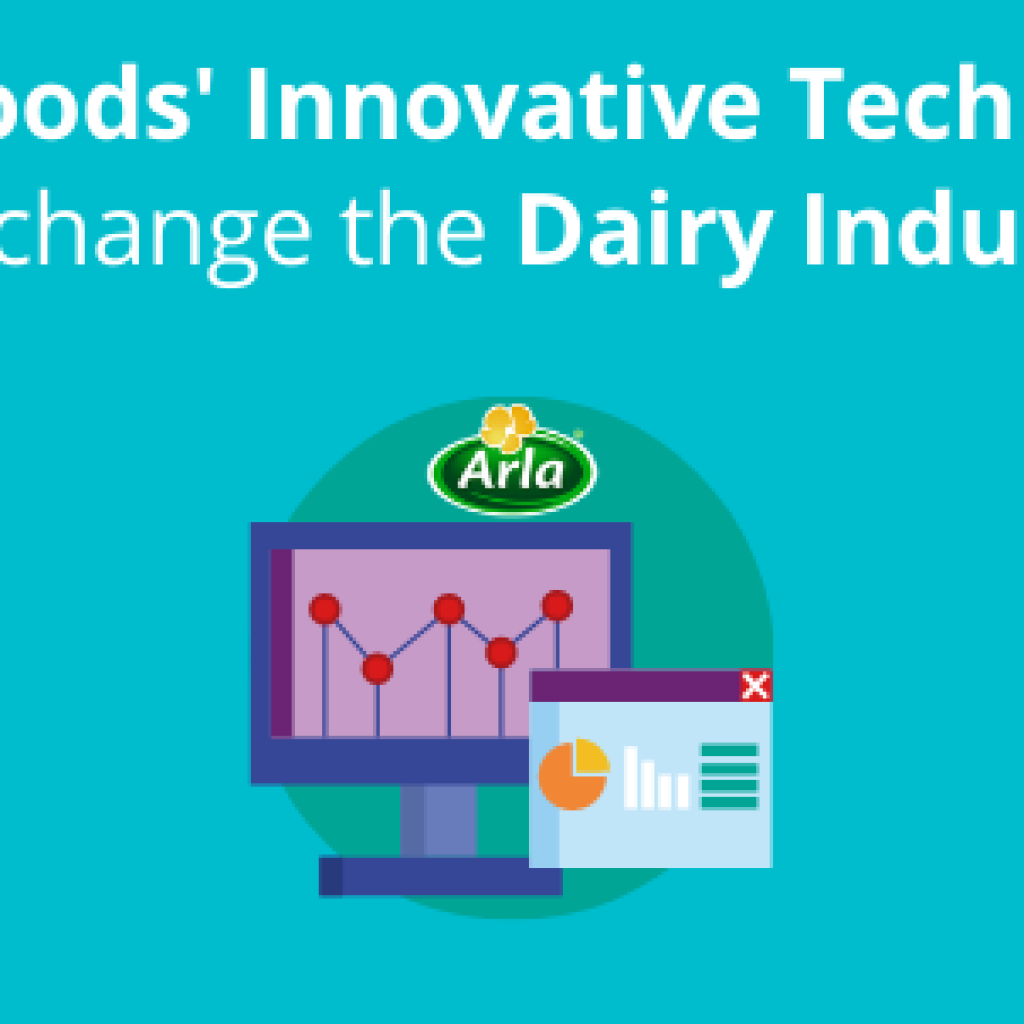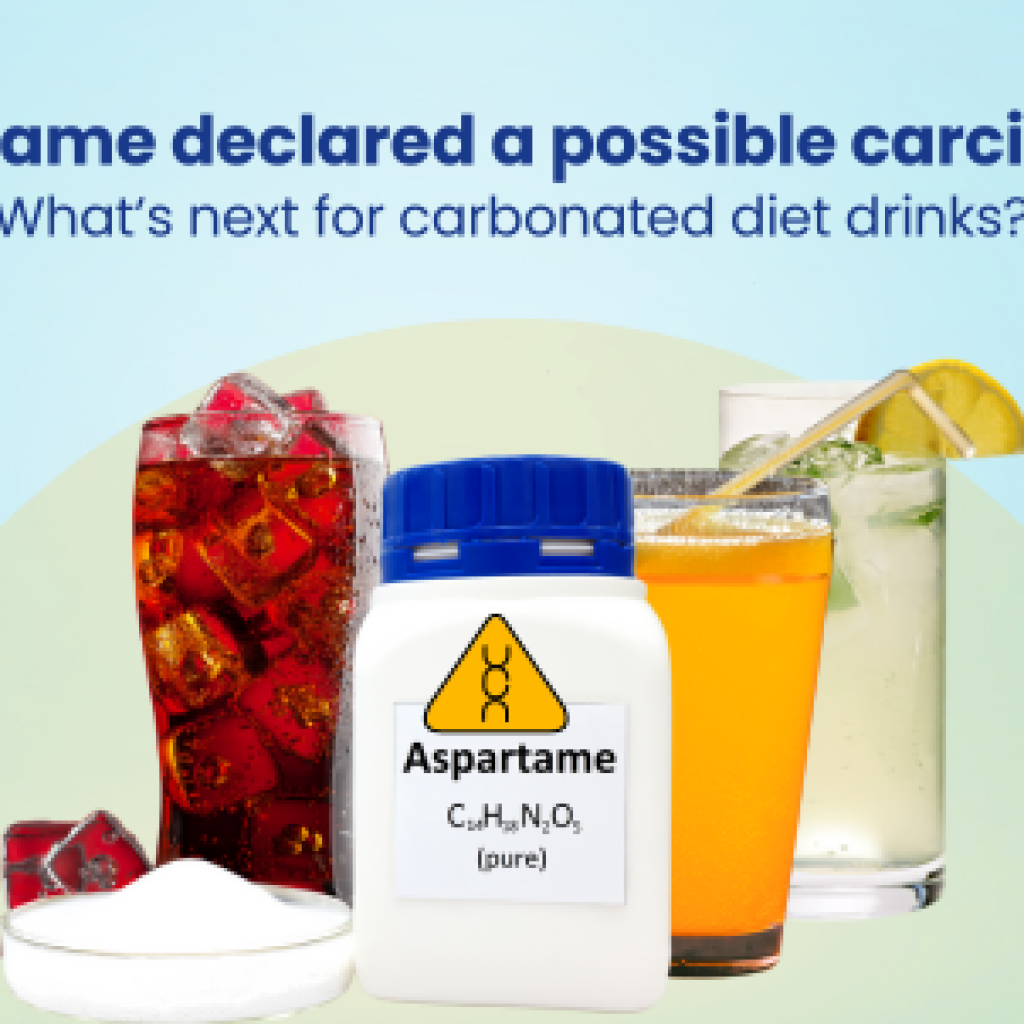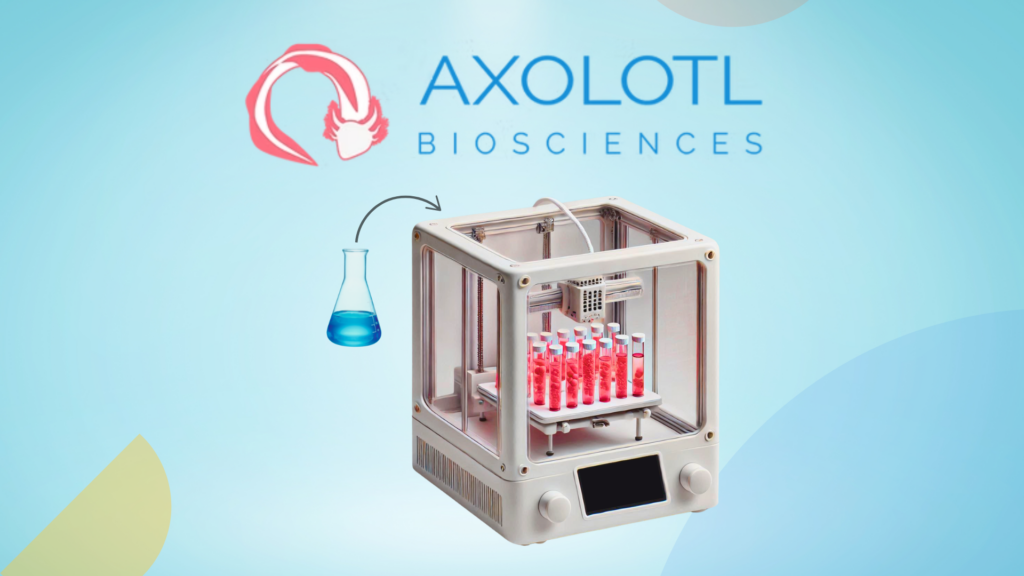Mycelium-based ice creams are helping create a carbon-neutral manufacturing process through CO2-consuming microbes! Similarly, starch-infused ice cream formulations are reducing energy consumption during production.
Algae, microbial electrolysis cells, and on-demand freezing are set to disrupt the traditional cold chain, potentially slashing emissions by up to 35%.
This article explores cutting-edge technologies that promise to deliver sustainable, guilt-free scoops while significantly reducing the environmental impact of ice cream production. If you’d like a more detailed report on carbon reduction technologies in this industry, please submit your query using the form below.
Starch-infused sustainable ice cream with enhanced thermal stability

China Agricultural University (CAU) is conducting full-fledged research on carbon footprinting and is one of the leading institutes in the field. In 2023, a patent from CAU revealed how adding 1% to 6% small granule starch to ice cream allows it to endure temperatures higher than the standard -18°C. This process refines its structure for better hardness without compromising the ice cream’s sensory quality.
In addition, this technique shrinks ice crystals and yields a finer consistency, ensuring the product can better manage temperature fluctuations during storage and transportation.
Enabling ice cream formulations to withstand storage and transportation at higher temperatures can reduce the refrigeration compressor’s operating time. Therefore, this sustainable ice cream will significantly reduce energy consumption and carbon footprint.
This mycelium-based ice cream has carbon-reducing microbes.
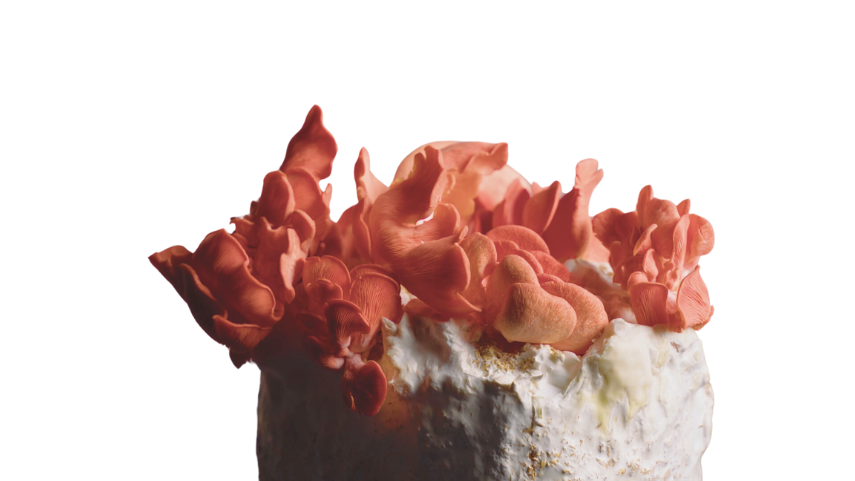
A patent from Infinite Roots, formerly Mushlabs GmbH, disclosed their invention of a sustainable ice cream product containing mycelium, colored through carbon-reducing microbes. This also reduces the carbon footprint of the process, as the microbes will feed on the carbon dioxide formed during mycelium growth.
This innovation could lead to a carbon-neutral or negative ice cream manufacturing process by using additional CO2 from external sources (or commercial CO2) to grow these pigment-producing microbes. The patent further disclosed that the mycelium-based ice cream products contain a minimum of 90% by weight of a mycelium composition, contributing to the product’s eco-friendly profile.
Low-chitin algae helps boost biofuels and cut carbon.
An England-based biotechnology firm, Algenuity Holdings Ltd., filed a patent in 2020 describing a composition with algae biomass from a modified Chlorella vulgaris strain, promoting easier digestibility. This non-genetically modified Chlorella vulgaris biomass is suitable for direct incorporation into food products, such as frozen desserts and ice creams, to make them more sustainable.
The modification process increases digestibility by humans or animals. Furthermore, it reduces the energy and costs associated with downstream processing, such as cracking or milling. This translates to a smaller carbon footprint and improved economic returns, particularly in biofuel production.
MEC: a sustainable dairy wastewater treatment technology
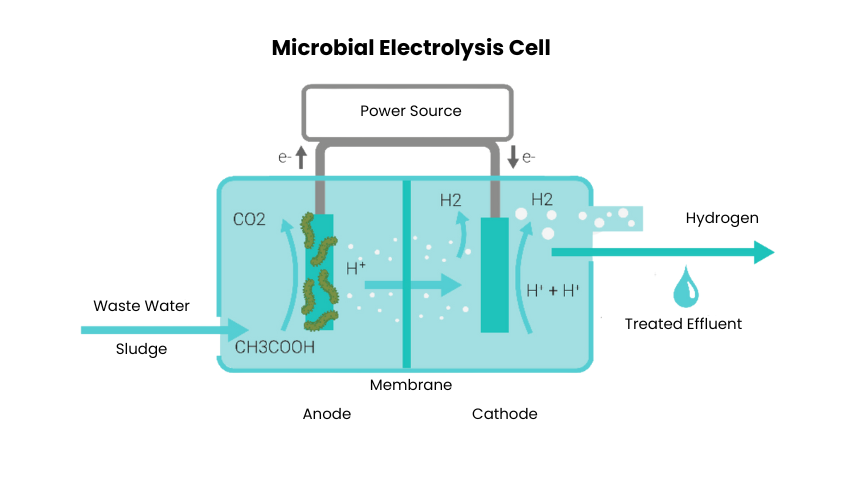
Beijing Enterprises Co Ltd has patented the microbial electrolysis cell (MEC). It is a sustainable method of treating wastewater from dairy products like ice cream. MECs can help reduce carbon dioxide emissions typically released by biogas combustion during wastewater treatment.
Biogas is often produced from wastewater through anaerobic digestion, in which microorganisms break down organic matter without oxygen, generating a mix of methane and CO2. When this biogas is burned for energy, it releases CO2 into the atmosphere.
Using MECs for wastewater treatment produces hydrogen gas instead of methane. When hydrogen is used as a fuel, its combustion product is water, not CO2. Therefore, using MEC provides a more eco-friendly approach to treating wastewater and generating usable fuel in the form of hydrogen.
ColdSnap’s patented technology reduces carbon footprint.
Traditional ice cream production uses a lot of energy to keep it cold from when it’s made until it’s sold in stores. However, ColdSnap’s innovation circumvents this burdensome “cold chain,” reducing the carbon footprint.
Their system stores ice cream mix at room temperature in sealed pods, which can be instantaneously frozen using ColdSnap® machines. This system reduces carbon emissions associated with shipping and storing ice cream by up to 42% compared to traditional ice cream.
The path forward
A study conducted by a Polish research institute revealed that pasteurization, homogenization, and ripening processes accounted for the highest CO2 emissions during ice cream production. This indicates that such processes are viable grounds for sustainability innovations.
With global ice cream consumption skyrocketing, its production must be sustainable while scaling up to meet this demand. The market will seek out eco-friendly innovations in the coming years. But exploring this field and scouting companies to work with has numerous challenges, such as:
- Keeping track of the latest innovations in this rapidly changing field,
- Identifying genuine inventions among exaggerated claims and greenwashing,
- Navigating the patent landscape to see which innovations are truly novel,
- Evaluating the quality of a company’s output to align with your standards.
And many more. Find relevant technologies and understand how these innovations align with your goals using our expertise. Fill out the simple form below to schedule a quick consultation today.
Authored by: Sakshi Tripathi, Patent Analytics
Edited by: Hemanth Shenoy, Market Research
Read next: Five Innovative Startups Working on Sugar Reduction in Foods

